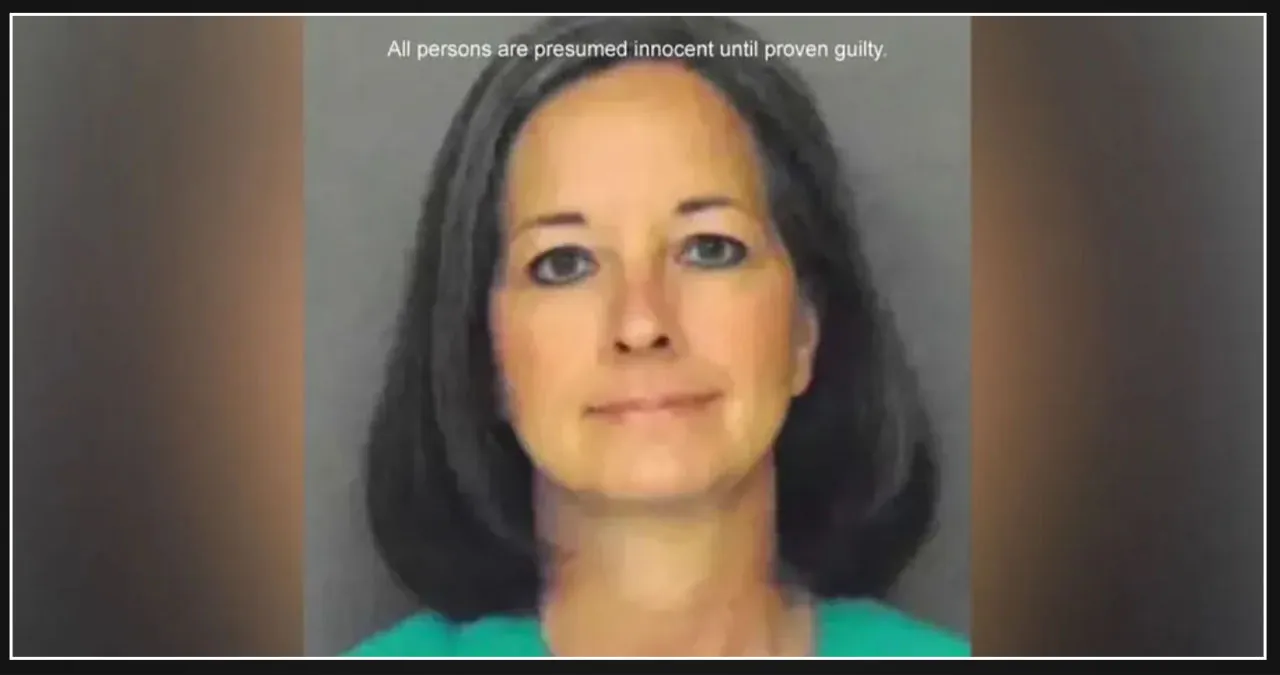South Carolina killer mother Susan Smith told an unknown male over the phone that she “wouldn’t talk” to the media just weeks before she was ultimately disciplined behind bars for doing just that, according to prison calls newly obtained by Fox News Digital.
On November 20, after serving 30 years in prison due to his interaction with a documentary filmmaker, the 53-year-old received a denial of parole.
Smith was charged with communicating with a victim or witness of a crime on August 26 and convicted on October 3, according to Chrysti Shain, director of communications for the South Carolina Department of Corrections.
Less than two weeks before the incident, on August 13, Smith told a male prison caller that she “got a letter from a woman,” who she claimed worked for a national media outlet, adding, “I’ve already thrown it away, so I can’t even read it to you.”
When asked what the letter was about, Smith responded, “Just wanted to talk with me. The same thing, like most of them… want to give me a platform to tell my story.”
“I wouldn’t talk to them, even if I could,” she told the male caller.
Smith then recounted another letter she had received.
“I did get a letter from some guy in California, but all he said was, ‘Hi, you don’t know me, and I’ve never done this before. Care to talk?’ That was it – just one line. It was handwritten…it was kind of odd,” she said. “It’s probably going in the trash too.”
Smith referenced the Freedom of Information Act in an earlier taped phone discussion with what appears to be the same male caller.
After speaking with a filmmaker the following month, Smith faced her first disciplinary action in nearly ten years.
Smith and the filmmaker discussed conducting an interview, filming for a documentary, and how to get compensated for it.
They discussed Smith’s crime and its aftermath, including “what was in the trunk of the car when it went into the water and her plans to jump from a bridge while holding the boys, but one woke up,” according to the incident report.
SCDC rules prohibit detainees at the South Carolina Department of Corrections from conducting phone or in-person interviews, but they may send letters.
Smith consented to provide the filmmaker with contact information for friends, relatives, and victims, including her ex-husband. The incident report states that the filmmaker deposited money into Smith’s account for “Calls and Canteen,” concealing his identity.
Smith lost her telephone, tablet and canteen privileges for 90 days.
“SCDC inmates are issued tablets that are secured for correctional use. The tablets can be used to make monitored telephone calls and to send monitored electronic messages,” Shain previously said. “They are considered a privilege. The department will determine when and if inmate Smith will earn the opportunity to be issued a tablet again.”
On October 25, 1994, Smith strapped her sons, three-year-old Michael and fourteen-month-old Alexander Smith, into the back seat of her automobile and let it roll down a ramp into John D. Long Lake in Union, South Carolina.
Smith, 22, watched as water filled the car in six minutes, drowning her boys and sinking it to the bottom of the lake.
On July 22, 1995, Smith was convicted of the deaths of her two children, and despite prosecutors’ arguments that she should face the capital penalty, she was sentenced to life in prison instead.
On Nov. 20, a board unanimously denied Smith’s parole request after she appeared upset and crying during a jailhouse court broadcast.
“I know that what I did was horrible…I’m sorry that I put them through that…I wish I could take that back, I really do…I was just scared,” she said during the parole hearing. “I didn’t know how to tell the people that loved them that they would never see them again…I’m sorry, I know that’s not enough…just words, but they come from my heart.”
The parole board denied Smith’s parole because of the nature and intensity of the crime, as well as his institutional record of violations.

